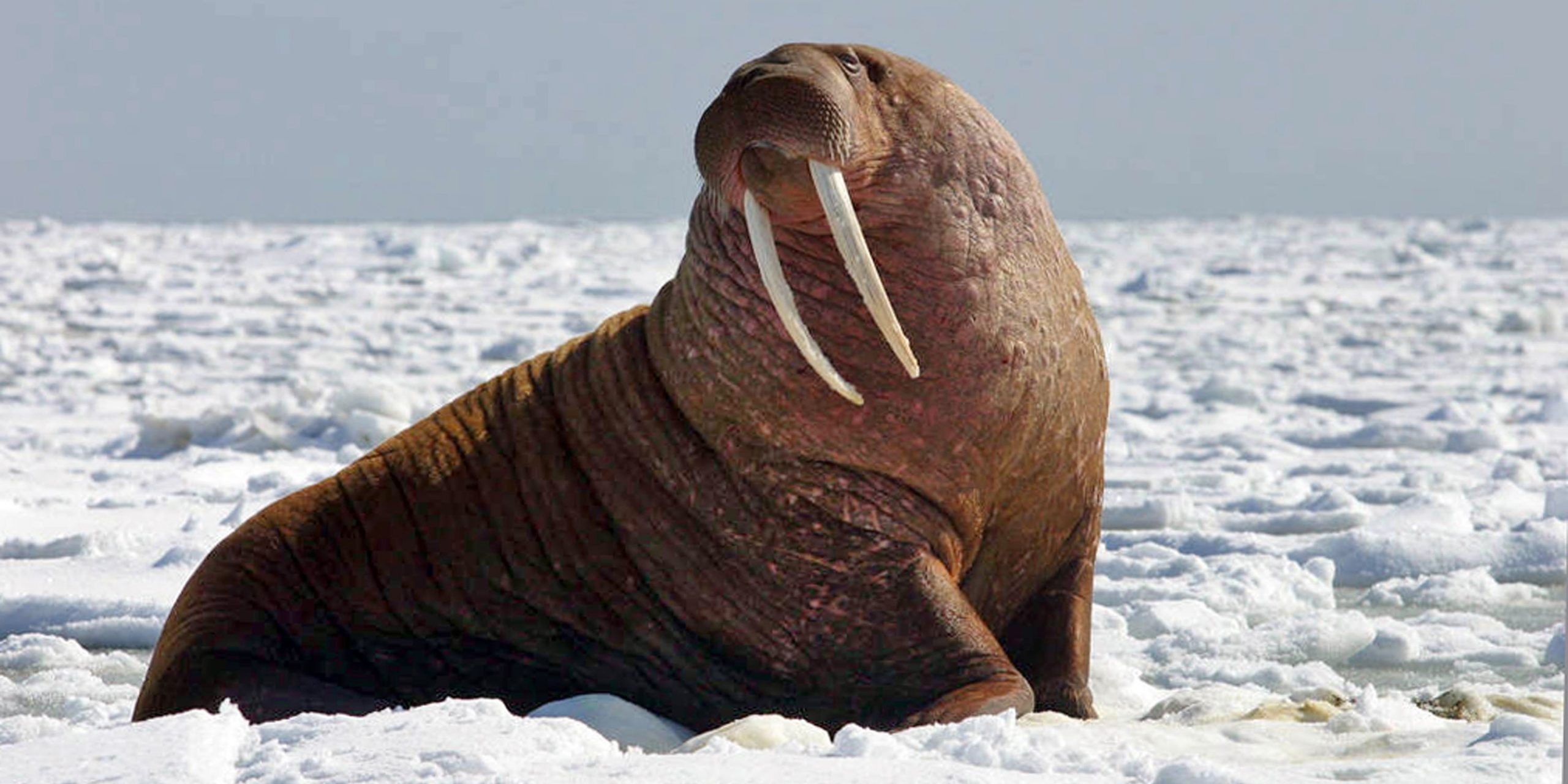
Joel Garlich-Miller/U.S. Fish and Wildlife Service via AP
- An Arctic walrus found itself thousands of miles from home this weekend off the coast of Ireland.
- Marine biologists agree the walrus is likely quite young based on the size of its tusks.
- One expert theorized the animal drifted far from home after falling asleep on an iceberg
- See more stories on Insider's business page.
Thousands of miles from the Arctic Circle most walruses call home, one young marine mammal was spotted off the coast of Ireland's County Kerry Sunday by a local father and daughter duo.
Five-year-old Muireann and her father Alan Houlihan were walking Ireland's Valentia Island on a Sunday stroll when Muireann spotted the giant creature breaching out of the water and onto the rocks.
-JennïeØSullivân (@OSullivanJennie) March 14, 2021
Houlihan told the Irish Examiner they first thought the creature was a seal before spotting its tusks, and said the walrus was massive in size, about the size of "a bull or cow."
"He was sitting on the rock now kind of posing, at one stage there he threw up a fin and it looked like he was giving us all the birdie," Houlihan told the outlet.
Marine biologists agreed the walrus was likely quite young based on the size of its tusks. Many scientists also emphasized how rare it was for a walrus to be so far south, despite the animal's ability to travel vast distances.
"It's a long way from home but it seems like a fit, fat, young walrus, which may be capable of making it home," Peter Richardson, head of ocean recovery at the Marine Conservation Society told the Daily Mail.
Another marine biologist, Kevin Flannery of Dingle Oceanworld, has his own theory for how the Arctic animal found itself so far from home.
"He's from the Arctic. I'd say what happened is he fell asleep on an iceberg and drifted off and then he was gone too far, out into the mid-Atlantic or somewhere like that down off Greenland possibly," Flannery told the Independent.
He said the animal would be "pretty tired" and "pretty hungry" after his long voyage.
But Tom Arnbom, a senior advisor to WWF on the Arctic disagreed. The wildlife expert told BBC News the walrus likely deliberately ventured away from its home seeking food off the Irish coast.
"Often it is adolescent animals that venture on long trips" to find new areas to breed, he told the outlet.
Arnbom said the animals have to come up to the shallows in order to eat mussels and clams of which they eat up to several thousand a day.
"It is lost while it is far from any friends, but I am not afraid that it will die," Arnbom told the BBC.
Flannery and Arnbom both expressed hope that the young walrus would eventually find his way back to his North Atlantic home.
Experts warned the public to keep their distance from the giant animal to avoid scaring the creature and endangering themselves.
The BBC reported there were no sightings of the animal in the area Monday, but Richardson told the Daily Mail there are plenty of mollusks for the hungry walrus to feed on in the vicinity and it's possible the creature is underwater out of sight, but still in the area.
The Irish Whale and Dolphin Group said this marks only the third validated sighting of a walrus in the country since 1999.